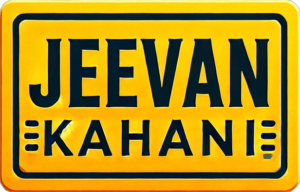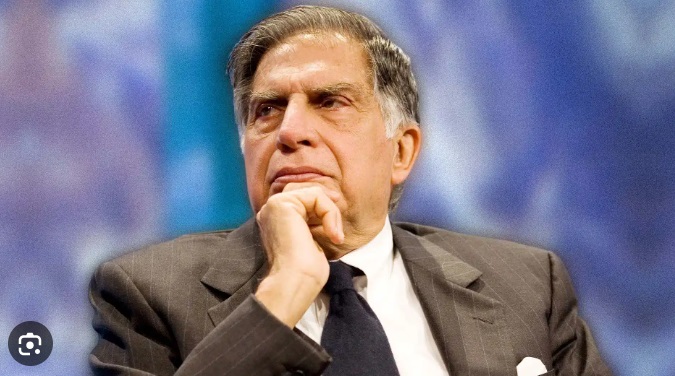Ratan Tata: Biography
Early Life and Education
Ratan Naval Tata was born on December 28, 1937, in Bombay (now Mumbai), India, into one of India’s most prominent industrial families. He is the great-grandson of the founder of the Tata Group, Jamsetji Tata, who is often called the “father of Indian industry.” Ratan Tata’s father, Naval Tata, was a well-known industrialist, and his mother, Sonoo Tata, was a social worker.
Ratan Tata had a relatively modest upbringing compared to the scale of the Tata family legacy. He was educated at the Campion School in Mumbai and later attended The Cathedral and John Connon School. He went on to complete his undergraduate degree in architecture and structural engineering from Cornell University in the United States in 1962. Tata then pursued an advanced management program at the Harvard Business School, where he earned his Master of Management Studies (MMS) degree in 1975.
Early Career
Ratan Tata’s entry into the Tata Group began in 1962 when he joined the Tata Group’s steel-making company, Tata Steel. He started at the bottom, working in the Tata Steel factory in Jamshedpur, where he gained firsthand experience of the industrial processes. This early exposure allowed him to understand the challenges faced by employees on the factory floor.
In the early years, Ratan Tata was more of a behind-the-scenes contributor, but his dedication and leadership qualities eventually caught the attention of the family and the Tata Group’s board of directors.
Rise to Leadership
In 1991, following the sudden and tragic death of his uncle, the then-chairman of Tata Group, J.R.D. Tata, Ratan Tata was appointed as the Chairman of the Tata Group. At the time, the Group was in a period of transition, facing challenges both at home and abroad. It was a difficult period, with India going through economic liberalization and changes in the business environment. Despite initial doubts and challenges about his leadership, Ratan Tata took bold decisions that would ultimately transform the Tata Group.
Key Achievements
- Tata Group’s Global Expansion: Under Ratan Tata’s leadership, the Tata Group expanded its operations beyond India and into international markets. Some of the most notable acquisitions include:
- Jaguar Land Rover (2008): Tata Motors, a part of the Tata Group, purchased the iconic British brands Jaguar and Land Rover from Ford for $2.3 billion. This acquisition helped Tata Motors to gain a foothold in the luxury car market and was considered a landmark deal.
- Corus Steel (2007): Tata Steel acquired the Anglo-Dutch steel company Corus for $12.1 billion, which made Tata Steel the world’s fifth-largest steel producer at the time.
- Tetley Tea (2000): Tata Tea, now known as Tata Global Beverages, bought the UK-based tea company Tetley, significantly expanding its global footprint in the beverage industry.
- Corporate Social Responsibility (CSR): Ratan Tata was a strong proponent of corporate responsibility, emphasizing that businesses should play a role in societal development. Under his leadership, the Tata Group strengthened its commitment to social initiatives, especially in healthcare, education, and rural development. Many of the Tata Group’s companies, such as Tata Motors, Tata Consultancy Services (TCS), and Tata Steel, established significant CSR programs. The group’s social enterprises and initiatives in areas like rural employment, education, and healthcare earned them widespread respect.
- Tata Nano: One of Ratan Tata’s most ambitious projects was the creation of the Tata Nano, the world’s cheapest car. Launched in 2008, the Nano was conceived as a solution to provide affordable mobility to the masses in India. Despite its initial success and global attention, the car faced various challenges in terms of market acceptance and safety concerns, leading to mixed results. However, the Nano project reflected Tata’s willingness to take bold risks in pursuit of innovation.
- Tata Consultancy Services (TCS): Tata Consultancy Services (TCS), under his leadership, became one of the world’s largest IT services companies, contributing significantly to the Tata Group’s profitability. TCS grew both organically and through acquisitions, and it helped position the Tata Group as a global business player.
- Tata Group’s Core Values: Ratan Tata is known for his integrity and the ethical standards he set for the Group. He was instrumental in ensuring that Tata Group’s core values of excellence, responsibility, integrity, and unity remained at the heart of the company’s global operations. Tata Group has long been regarded as one of the most reputable business conglomerates, with a commitment to high standards of ethics and corporate governance.
Challenges and Controversies
Despite Ratan Tata’s successes, his tenure was not without challenges:
- Management Struggles: He faced resistance from certain segments within the group, especially when it came to bringing in new management practices. Some of the older members of the group were skeptical about Ratan Tata’s new-age business strategies, as they deviated from the traditional family-driven model.
- Tata Sons vs. Cyrus Mistry: One of the most publicized controversies during Tata’s second stint as Chairman was the sudden ousting of Cyrus Mistry as the chairman of Tata Sons in 2016. Mistry, who had been appointed by Ratan Tata himself as his successor, was removed in a highly publicized boardroom conflict. Ratan Tata temporarily stepped in as interim chairman, and Tata Group’s governance and internal management practices came under intense scrutiny during this period.
Retirement and Legacy
Ratan Tata retired as Chairman of Tata Sons in December 2012, and he was succeeded by Cyrus Mistry, whom he had groomed to take over the role. After retiring, Tata remained active as an advisor and philanthropist. In 2016, following the removal of Cyrus Mistry, Tata returned as interim chairman to lead the group during a period of corporate restructuring.
He officially stepped down in 2017, marking the end of an era for the Tata Group. However, his legacy continues to shape the Tata Group and Indian business culture. Today, he is recognized not only as a successful industrialist but also as a philanthropist who played a crucial role in advancing corporate social responsibility in India.
Tata’s leadership style is often described as humble, with a focus on long-term vision, ethical practices, and the well-being of his employees and society. He has been awarded numerous honors, including the Padma Bhushan, one of India’s highest civilian awards, for his contributions to industry.
Personal Life
Ratan Tata is known for his private lifestyle, and he has been a lifelong bachelor. He is an avid lover of aviation and cars and has a personal interest in aviation, which is believed to have been inspired by his close relationship with J.R.D. Tata, who was a pioneering aviator. Tata also has a keen interest in architecture and design.
He is known for his philanthropy, with a significant portion of his wealth being directed toward charitable endeavors. His personal wealth is not as extensive as his business achievements suggest, given his commitment to using resources for public welfare through foundations like the Sir Ratan Tata Trust and other charitable initiatives.
Conclusion
Ratan Tata’s life and career reflect the journey of a visionary leader who led one of India’s most significant business conglomerates to new heights. His emphasis on ethical leadership, social responsibility, and global expansion has left an indelible mark on both the Tata Group and the Indian business landscape. Today, he continues to be regarded as a figure of immense respect in the world of business and beyond.



